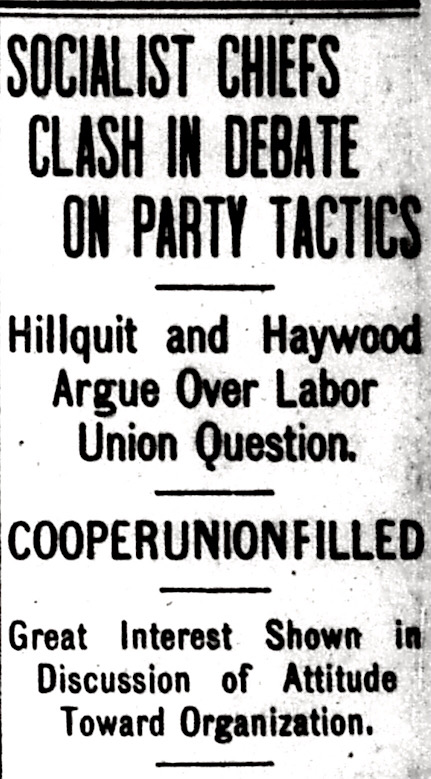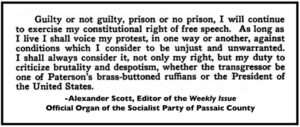 —————-
—————-
Hellraisers Journal – Thursday July 3, 1913
The Conviction of Alexander Scott, Editor of the Weekly Issue
From the International Socialist Review of July 1913:
The Conviction of Alexander Scott
A STATES Prison sentence of not more than fifteen years nor less than one year, with a fine of $250, was imposed, June 6th, on Alexander Scott, editor of the Weekly Issue, official organ of the Socialist party of Passaic County, who was convicted on June 3rd on a charge of “aiding and abetting hostilities to the government of the City of Paterson,” by Judge Klenert in the Court of Quarter Sessions.
No sooner was sentence announced when Henry Carless, a Socialist attorney of Newark, and Henry Marelli, both of whom defended Scott, filed notice that a writ of error had been applied for, a copy of which notice was presented to the judge. Bail of $3,000 was fixed and Scott was later released when Samuel Ginsburg, of Passaic, furnished the bond.
Scott was found guilty and sentenced under a law placed on the statute books in 1902 shortly after the assassination of President McKinley, but never before invoked in the State of New Jersey. Scott’s indictment was caused by the publication of editorials and pictures in the Issue in which the police, especially Chief Bimson, was characterized as the “boss anarchist” and the “boss strike-breaker.”
Scott’s conviction practically makes it a crime for any paper to criticize public officials, and makes the constitutional guarantee of free press a dead letter. In the prosecution of the case the state contended that the police were a part of the city government and that ridiculing the police was ridiculing the government.
“If we can’t criticize a policeman for his brutality, we might as well give up publication of newspapers in this country,” remarked a prominent newspaper man who was a visitor in court when sentence was imposed on Scott. He was highly indignant over the sentence, and said he would start a nation-wide movement to have the Scott verdict reversed.
That the authorities of Paterson have made up their minds to suppress the Issue was evidenced by the fact that they forced the sentence of Scott as soon as he was convicted. Though Patrick L. Quinlan, the silk strike leader, was convicted several weeks ago, the authorities made no move to sentence him, but they hurried the sentence of Scott.
While Scott’s case was rushed through, the authorities have made no move to prosecute the policemen who stole an edition of the Issue by breaking in the Socialist party headquarters and taking possession of 5,000 copies of the paper. The policemen are now out on $200 bail each, while Scott’s bail is fixed at $3,000.-N. Y. Call.
While the lawyers were arguing over technicalities, Scott, unconcerned, was busily engaged noting the proceedings in a notebook. “I am in the fight to win, and I am confident of exoneration in the higher courts,” said Scott. “They cannot suppress the Issue”
But the Socialists and Industrial unionists do not propose that Scott should serve one month in prison if they can help it. The S. P. of New Jersey, will appeal to the National Socialist Party to take up the Scott case and make a nation-wide fight in his behalf.
Solidarity, the I. W. W. organ has issued a call for protest meetings. “Scott has stood by the I. W. W. and the I. W. W. must stand by him,” writes Justus Ebert.

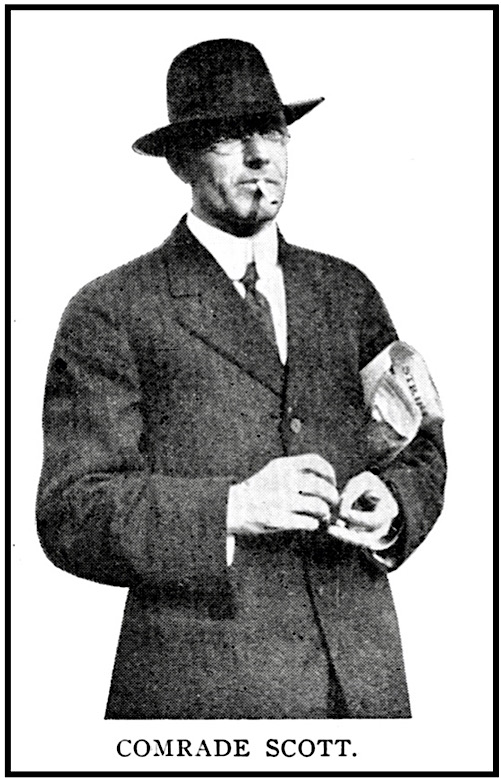
 —————
—————
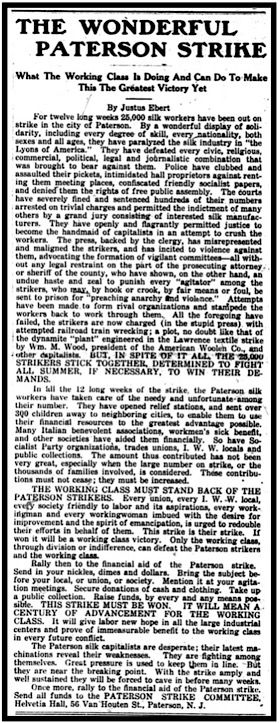
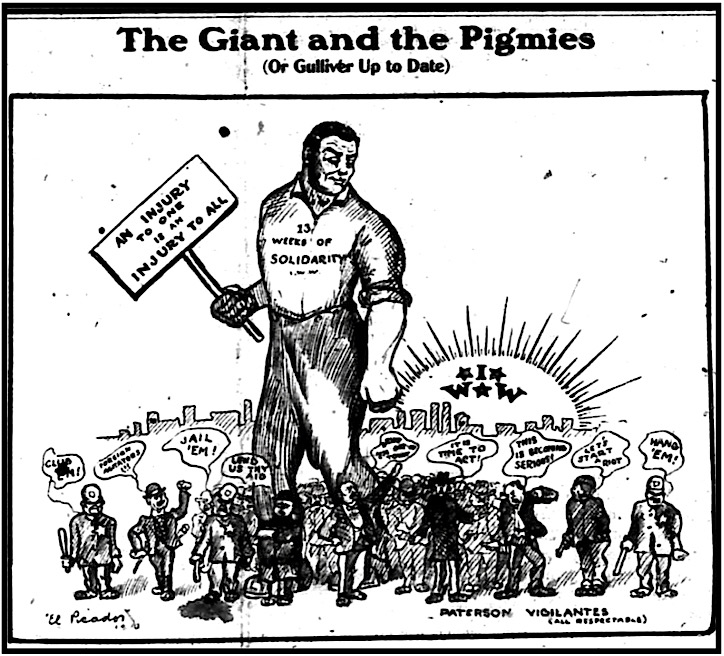
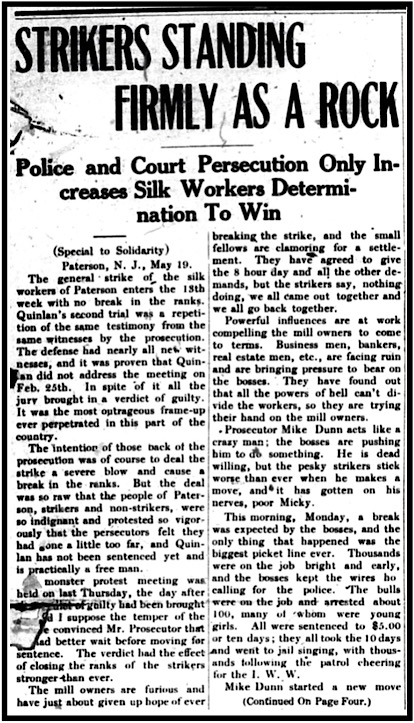
 —————
—————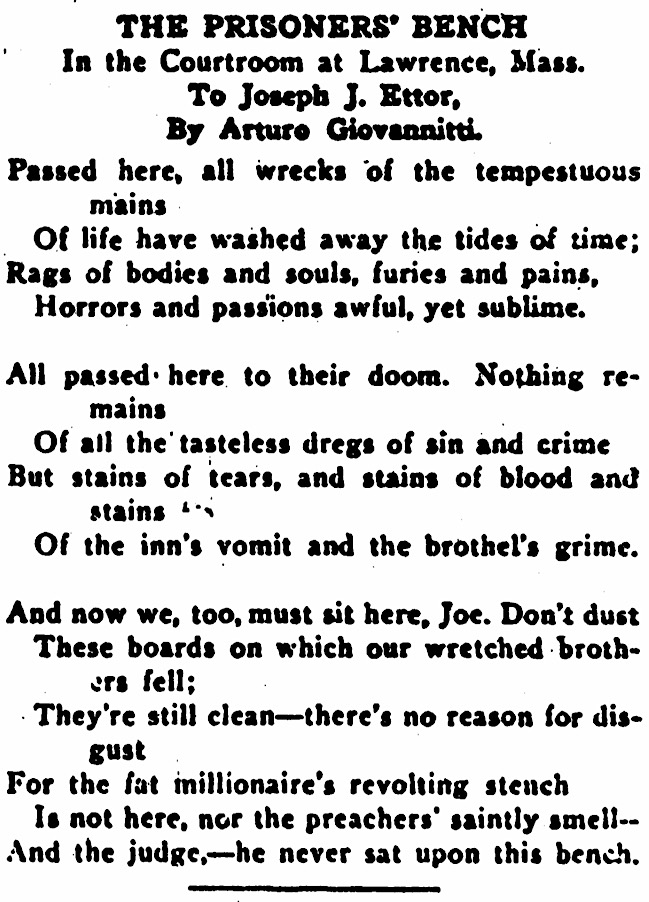
 —————
—————